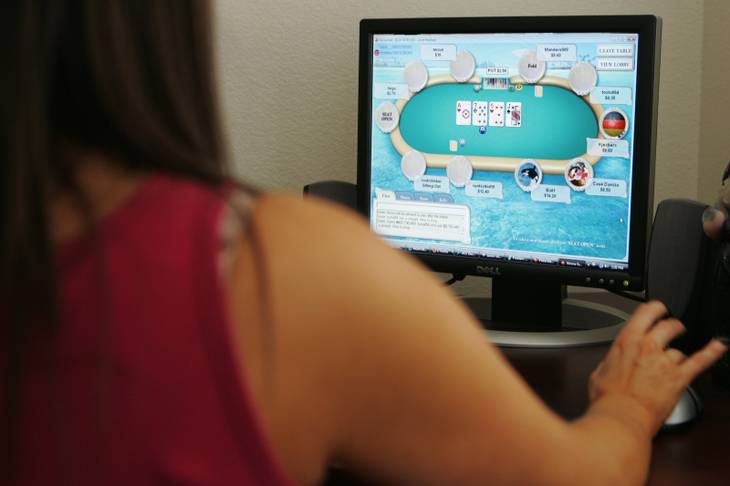Sun Archives
- Wynn announces partnership to expand Internet gambling (3-24-2011)
- Internet poker company looks to Nevada for entry into U.S. (3-21-2011)
- Bill would set regulations for Internet poker (3-10-2011)
- NV considers Internet poker bill, but casinos balk (3-10-2011)
- Board OKs Caesars Entertainment ties with foreign Internet gaming company (3-9-2011)
- Online gambling is illegal, but betting sites’ logos often in Nevada casinos (7-13-2010)
- Question evolving from legalization debate: How to tax online casinos?
- Lawmakers push to regulate, tax online gaming (5-19-2010)
- With aggressive push, Internet gambling again in play (2-9-2010)
The state Gaming Control Board on Wednesday issued a draft of proposed regulations governing Internet poker, a first step in establishing a framework for licensing online poker operators by a Jan. 31 deadline.
The draft regulations were sent to gaming license holders statewide to solicit their input and will be discussed in public workshops starting Sept. 26. Regulators will gather testimony and make revisions before the Nevada Gaming Commission votes on the regulations. Regulators are expected to approve the rules in December.
The regulations come amid a federal crackdown on Internet poker by the Justice Department, which has long declared all forms of online gambling to be illegal. Nevada officials have said their efforts to legalize online poker won’t conflict with federal prosecution of unlicensed operators who have flouted the Justice Department’s ban. Nevada’s regulations are expected to allow for the state regulation of Internet poker nationwide should Congress approve online poker regulations at the federal level.
The effort stems from legislation supported by Gov. Brian Sandoval and Control Board Chairman Mark Lipparelli, who view Internet poker as a potential moneymaker for the state and a way for Nevada to gain early dominance as a headquarters for national and global Internet gambling operations.
“There is no better home for ‘iGaming’ in the U.S. than in Nevada,” Lipparelli said. “The (Gaming Control) Board has successfully regulated the gaming industry for more than 50 years and is clearly best positioned to establish and administer a balanced set of regulations that allows a new form of commerce to begin and upholds our regulatory principles protecting the betting public.”
The proposed regulations cover licensing suitability, technology approvals, auditing, record-keeping, customer enrollment, internal controls and a progressive disciplinary process for regulatory violations.
The public will be able to voice objections to online poker or push for more stringent rules governing certain aspects of it, such as protections for problem gamblers and age-verification procedures, Lipparelli said.
Aside from what’s expected to be “a good deal of revision” in the coming months, the regulations are a done deal because the legislation required the Gaming Commission to adopt licensing rules by the end of January, he said.
Critics of Internet gambling have concerns about how effectively regulators of brick-and-mortar casinos can protect against fraud and other problems in the virtual world. Regulators have acknowledged that there may be no way to assure that minors aren’t gambling online using their parents’ credit cards and passwords.
Besides the latest crackdown, which resulted in federal indictments against the three biggest poker websites doing business in the United States, the Internet abounds with stories of collusion and other fraud committed by online players using false or secret identities.
Despite such fears, Lipparelli has thrown his support behind Internet poker because he thinks safeguards have evolved to a point where the business can be effectively monitored. Online poker rooms would be required to meet standards similar to Nevada’s casinos, “giving players as much confidence as possible in the entities and technologies that might eventually gain approval,” he said.
“Internet poker has become a multibillion-dollar business around the world. The technology supporting it, while not perfect, has improved dramatically since introduction,” Lipparelli said.
